Assessing European Neighbourhood Policy CEPS (Centre for European Policy Studies) is an independent research institute based in Brussels. Its mission is to produce sound policy research leading to constructive solutions to the challenges facing Europe. The views expressed in this report are entirely those of the authors and should not be attributed to CEPS or the Policy and Operations Evaluation Department of the Ministry of Foreign Affairs of the Netherlands, or any other institution with which the authors are associated.
Assessing European Neighbourhood Policy
Perspectives from the literature
Study commissioned by the Policy and Operations Evaluation Department of the Ministry of Foreign Affairs of the Netherlands
Edited by
Hrant Kostanyan
Contributors
Steven Blockmans
Hrant Kostanyan
Artem Remizov
Linda Slapakova
Guillaume Van der Loo
CEPS, Brussels Rowman and Littlefield International, London
Published by Rowman & Littlefield International, Ltd.
Unit A, Whitacre Mews, 26-34 Stannary Street, London SE11 4AB
www.rowmaninternational.com
Rowman & Littlefield International Ltd. is an affiliate of Rowman & Littlefield
4501 Forbes Boulevard, Suite 200, Lanham, Maryland 20706, USA
With additional offices in Boulder, New York, Toronto (Canada), and Plymouth (UK)
www.rowman.com
Centre for European Policy Studies (CEPS)
Place du Congrs 1, 1000 Brussels, Belgium
www.ceps.eu
Copyright 2017 Ministry of Foreign Affairs of the Netherlands.
The authors have asserted their rights to be identified as the authors of this work in accordance with the Copyright, Designs and Patents Act 1988.
British Library Cataloguing in Publication Data
A catalogue record for this book is available from the British Library
ISBN: 978-1-78660-444-6 Hardback
978-1-78660-445-3 Paperback
978-1-78660-446-0 Ebook

The paper used in this publication meets the minimum requirements of American National Standard for Information SciencesPermanence of Paper for Printed Library Materials, ANSI/NISO Z39.48-1992.
Printed in the United States of America
CONTENTS
ABOUT THE AUTHORS
Hrant Kostanyan is Researcher at CEPS, a Senior Key Expert at the College of Europe Natolin and an Adjunct Professor at Vesalius College.
Steven Blockmans is Senior Research Fellow and the Head of the EU Foreign Policy unit of CEPS and a Professor of EU External Relations Law and Governance, University of Amsterdam.
Artem Remizov is Visiting Fellow at CEPS and Erasmus Mundus PhD Fellow (LUISS Guido Carli/ULB).
Linda Slapakova is an Intern at CEPS and the President of Vesalius Student Government, Vesalius College.
Guillaume Van der Loo is Researcher at CEPS and a postdoctoral researcher (FWO) at the Ghent European Law Institute (GELI).
FOREWORD
T he European Neighbourhood Policy (ENP) is a key priority within the European Unions foreign policy. Many events in the past few years have shown that the interests of European citizens are directly affected by the stability, security and prosperity of the European Unions neighbouring regions. At the same time, the Union and its member states face many challenges and dilemmas in designing and pursuing a policy that not only effectively promotes these interests, but also builds stronger partnerships with the neighbouring countries based on the values on which the Union is founded.
The Ministry of Foreign Affairs of the Netherlands is committed to contributing to a more effective, efficient and coherent foreign policy of the European Union. In light of this commitment, the Policy and Operations Evaluation Department (IOB) has embarked upon a policy evaluation of the Netherlands contribution to the ENP, focusing on these three dimensions. Apart from providing public accountability for the policy pursued, this evaluation aims to draw lessons for the future.
The IOB has commissioned this literature review, performed by CEPS in Brussels, as one of the building blocks of its policy evaluation. The academic literature on the ENP is extensive and multidisciplinary, dating back to the policys inception in 2003. First the Arab revolts and then Russias assertiveness in the eastern neighbourhood prompted reviews of the ENP, in 2011 and 2015 respectively. These reviews have renewed scholarly interest in the ENP. However, despite a rapidly growing body of literature, there was no systematic review available that catalogued and assessed the explanatory variables used by ENP scholars.
By focusing on the recent literature (since 2011), this review by CEPS deliberately identifies the factors that explain the (lack of) effectiveness and coherence of the ENP. This exercise has resulted in a rich overview of and informed reflection on a wide variety of ENP-related themes. The study identifies where there is consensus among scholars and where perspectives and judgement differ. It also identifies several gaps in the literature where further research is needed.
By publishing this study, IOB and CEPS aim to enrich the ongoing debate on the ENP among both academics and policy-makers. It is of interest to a wide audience of officials, diplomats, parliamentarians, researchers at think tanks, civil society organisations, university teachers, trainers, students and journalists who want to know more about the ENP.
The study was prepared by a team of researchers from CEPS in Brussel and was edited by Hrant Kostanyan, researcher at CEPS. During the drafting phase, it has benefitted from the comments by IOB evaluators Bas Limonard, Tim Scheerder and Paul de Nooijer. The views in this book are entirely those of the authors and should not be attributed to CEPS, IOB or the Ministry of Foreign Affairs of the Netherlands.
This book is available in both print and in PDF. It can be downloaded freely from https://english.iob-evaluatie.nl and www.ceps.eu.
Dr. Wendy Asbeek Brusse
Director Policy and Operations Evaluation Department (IOB)
Ministry of Foreign Affairs of the Netherlands
SUMMARY
T his report presents a review of the literature on the European Neighbourhood Policy (ENP) published since 2011. Through the application of an iterative research design, the review aims to identify the main factors contributing to the effectiveness of the ENP and the levels for assessing its coherence as selected and applied in the literature. From their review of the literature, the authors identify six major factors determining the effectiveness of the ENP, namely conditionality and socialisation, interests and values, ownership and local dynamics, the visibility and perceptions of the ENP, the influence of external (f)actors and coherence.
Scholars pay considerable attention to conditionality when addressing the effectiveness of the ENP. The literature on conditionality tends to focus on the analysis of democracy promotion by the EU. The EU seeks to transfer its values to the neighbouring countries not only through conditionality, but also through the use of linkages and functional cooperation. The effectiveness of conditionality as a mechanism for democratisation, however, has been limited. This is the result of a combination of factors: the EUs conditions have not been well defined, the EU has shown a lack of determination and political will in the pursuit of its approach and its offer has been of limited interest to the partners.

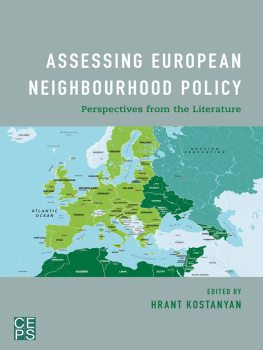


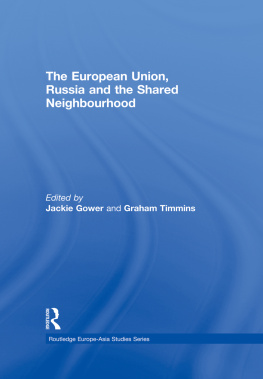
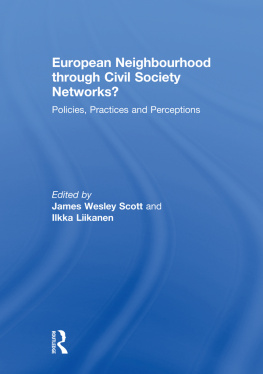
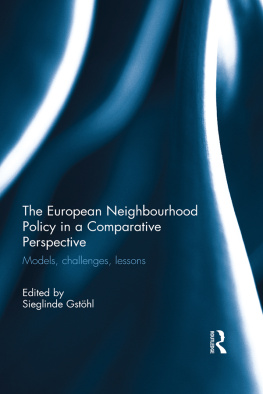
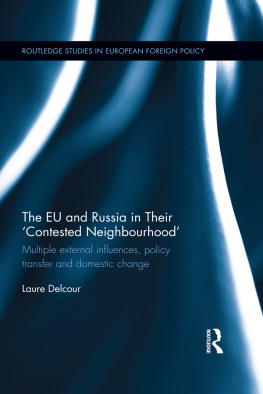
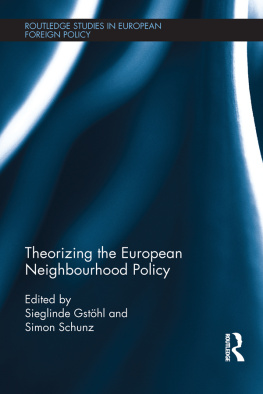
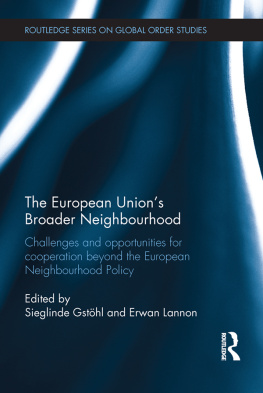
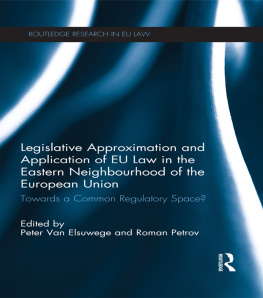
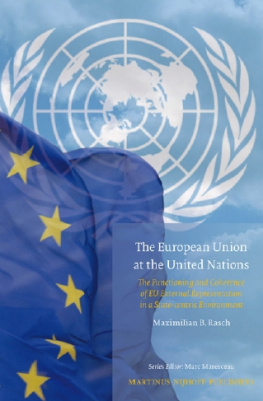
 The paper used in this publication meets the minimum requirements of American National Standard for Information SciencesPermanence of Paper for Printed Library Materials, ANSI/NISO Z39.48-1992.
The paper used in this publication meets the minimum requirements of American National Standard for Information SciencesPermanence of Paper for Printed Library Materials, ANSI/NISO Z39.48-1992.
